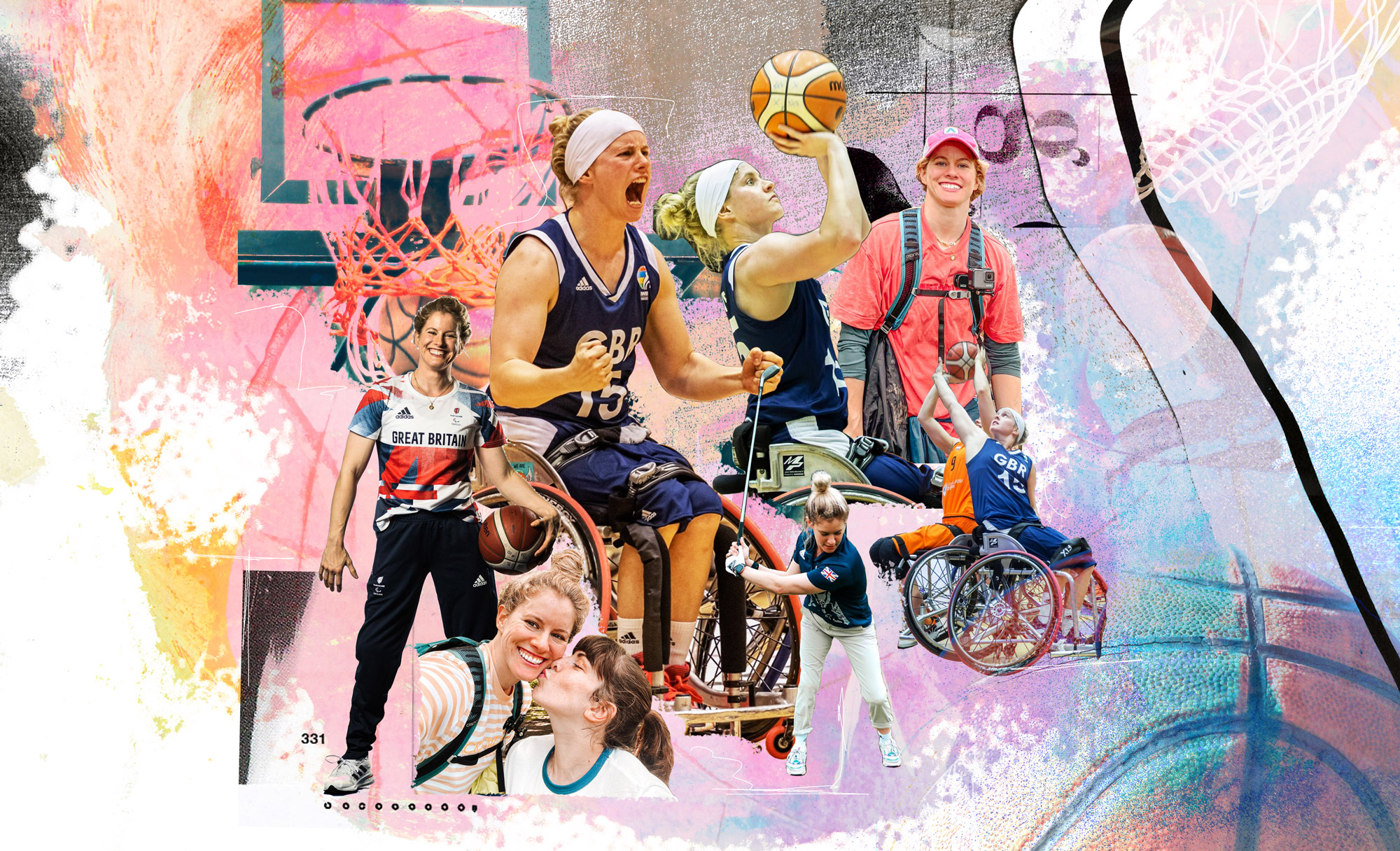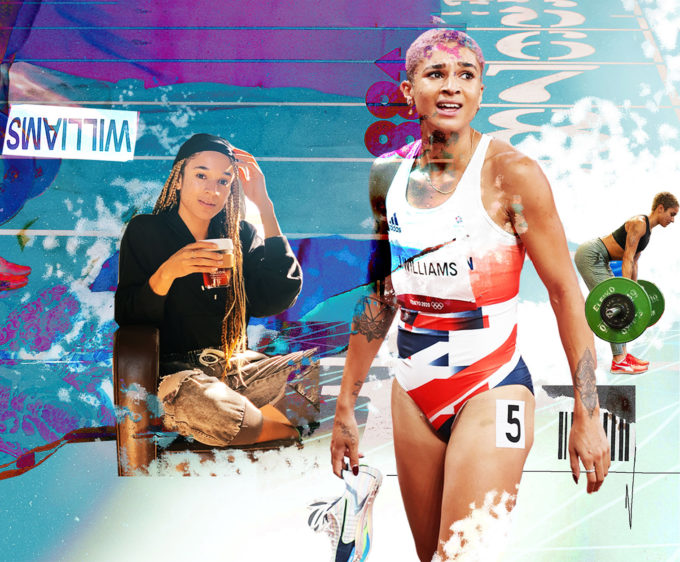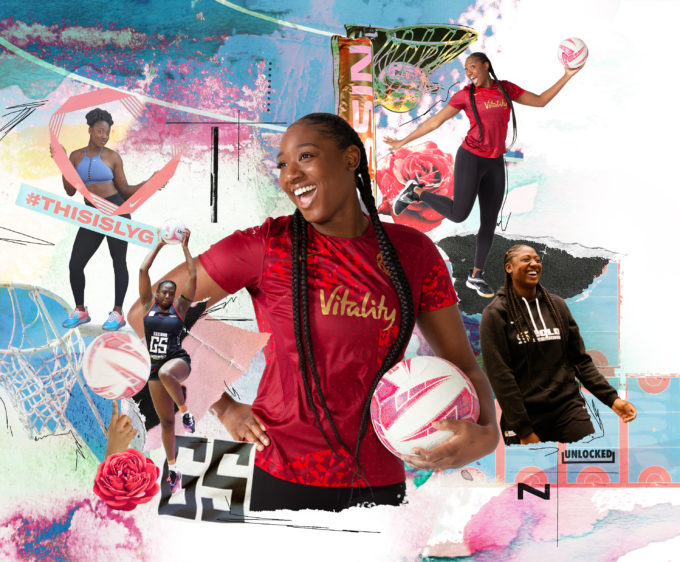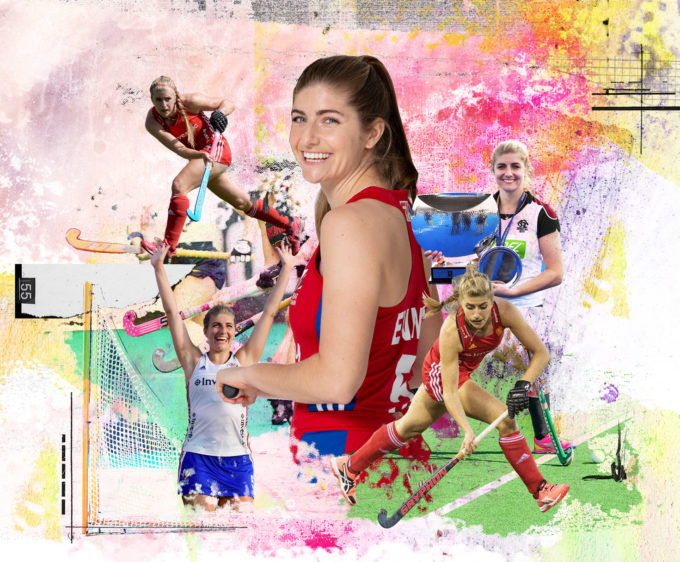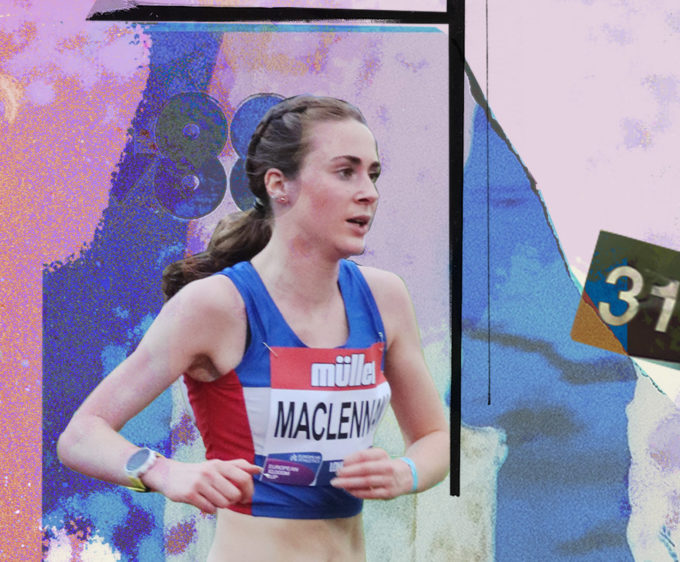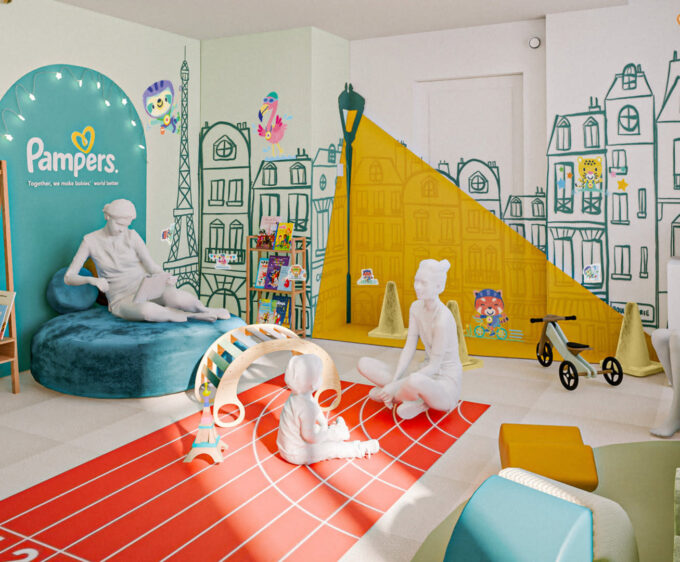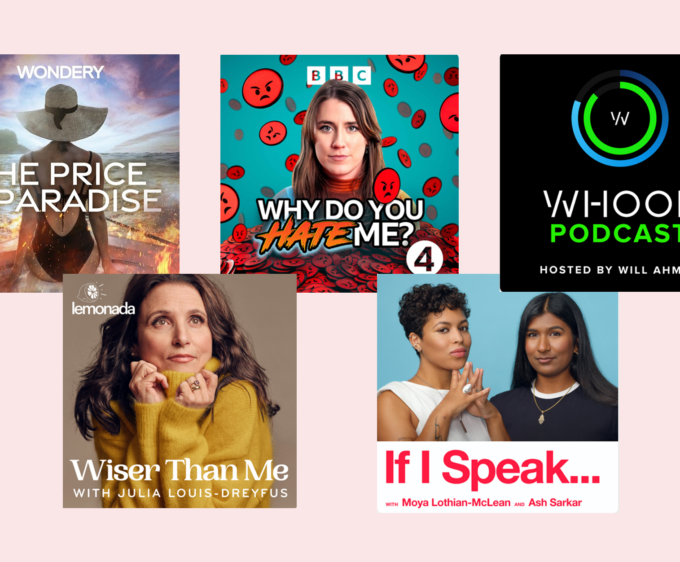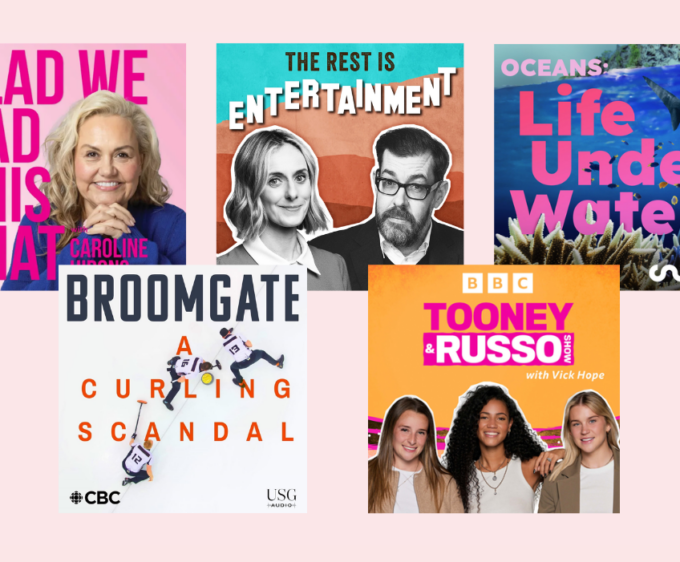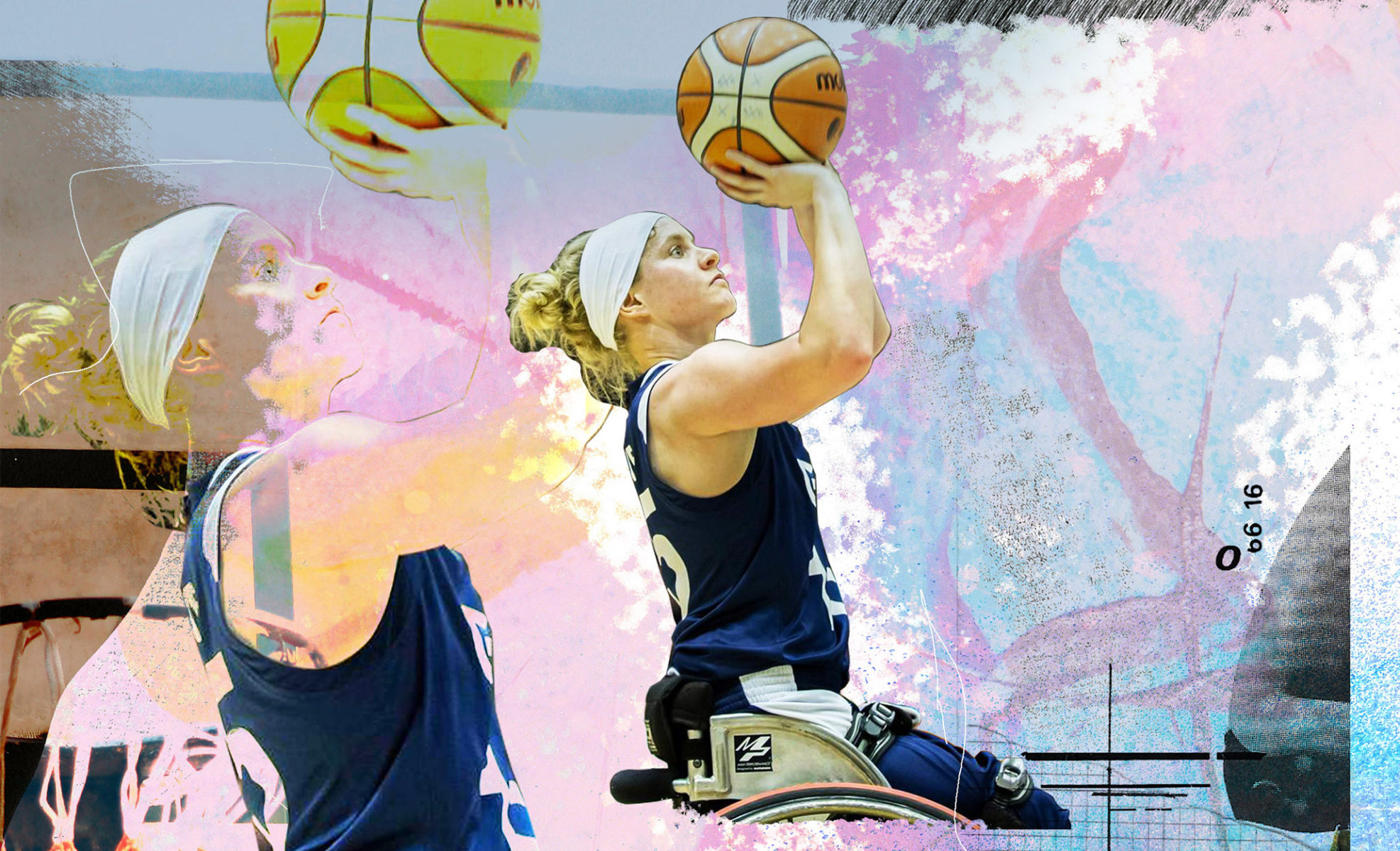
Where There’s A Wheel There’s A Way
In 2012, Robyn Love discovered wheelchair basketball and she’s never looked back. Now at the peak of her performance, she wants to inspire other women, too
By Kate Carter
Illustration by Esme Harvey-Otway
“I’ve got four sisters,” says Robyn Love. “I pretty much grew up in a team sport!” The GB wheelchair basketball Paralympian is explaining what makes team sport so special. “It’s the confidence, the skills it gives you as a person being part of a team – whether it’s wheelchair basketball, or another sport – it’s just about giving girls and women opportunities.”
Thirty-one-year-old Robyn is now a two-time Paralympian, despite only taking up the sport in 2013. We speak as she prepares to head off to Tokyo (where the GB team made it to the quarter-finals), and she attempts to squeeze everything into her car boot. And if travelling light is hard enough with a wheelchair and endless kit to consider, it’s twice as hard when your fiancée also happens to be a teammate. “It’s double everything,” she laughs. “We’re used to going to tournaments here, there and everywhere, so we had a ‘soccer mum’ car but we’ve swapped it for a more environmentally-friendly hybrid. Going to the Paralympics, though, is the most luggage you’ll ever have. We just didn’t know if we’d fit it all in, so we were just checking, you know, to reduce the anxiety.”
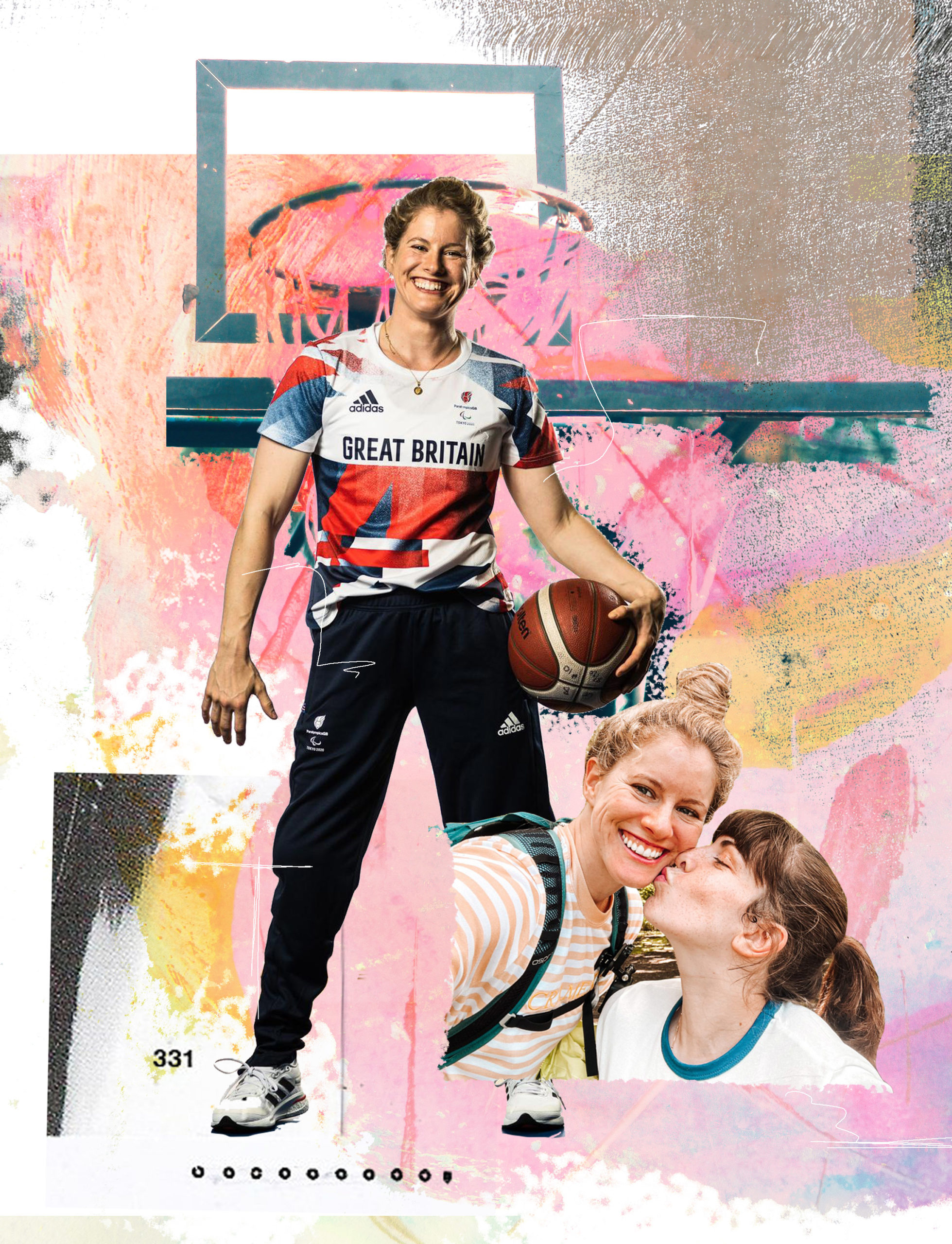
Cutting down on unnecessary stress is obviously a key part of any athlete’s preparation, and Covid times have thrown many a spanner in the works. But even without PCR tests and lockdowns, travelling as a para-athlete involves constant practical difficulties: “I think there’s a statistic out there,” Robyn muses, “It’s Disability Pride Month this month, so a lot of information comes out about equality and ableism and so on. One of the crazy stats was something like one in five wheelchairs is damaged by airlines. Amy, one of my teammates, had her chair squashed once. She’s had the worst luck: things sheared off, things squashed…”
Robyn doesn’t sound like one of life’s worriers, though. She’s warm, funny, outgoing and self-deprecating. When she talks about joining the GB wheelchair basketball training camp, she says, “I’m like one of those people who invites themselves to your house.” Her ascent to staple of the GB team was remarkably fast. “I saw wheelchair sports for the first time during London 2012,” she says. “The London legacy lives on in me, that’s what I like to say. I was born with my disability – arthrogryposis, I’ve got one leg shorter than the other and so on – but I was able to play able-bodied sports growing up. I just got stuck in, really; I was far too competitive to let anything get in my way.”
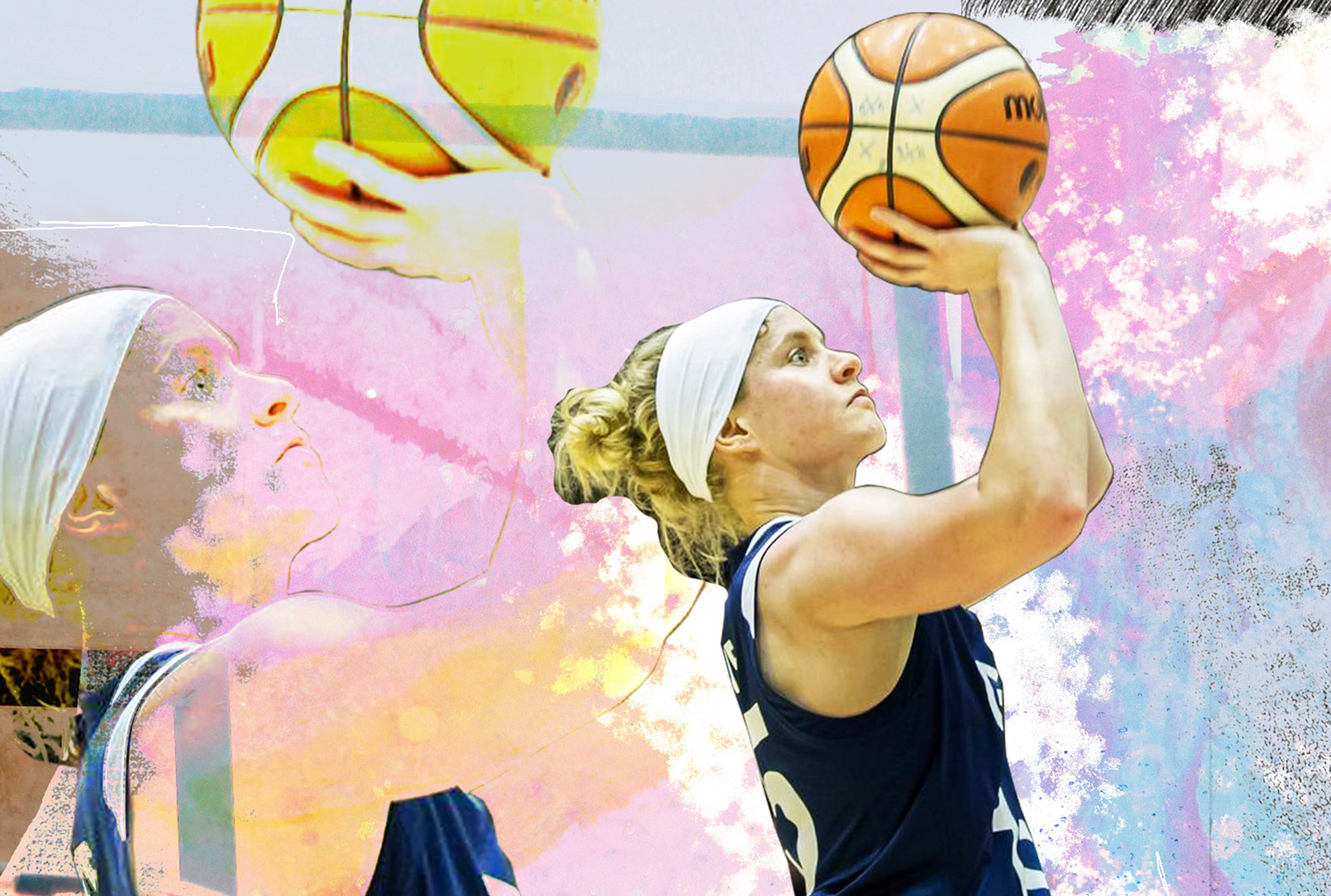
It was a casual, chance viewing back in 2012 that opened her eyes to other possibilities. “I was captain of the Edinburgh Napier basketball team, and I lived with one of my teammates, Lindsey. She was watching wheelchair basketball on TV and said, “Could you do that?” I asked what it was. I’d literally never seen it before. That was genuinely the first time I’d been exposed to disability sport.”
The seed was planted but it took a year to germinate. “Another teammate, who was able bodied, started playing because she was injured at the time. I’d always assumed you had to use a day chair all of the time to play wheelchair sport. Even though I had a disability, I just thought that had to be in the rules. She explained that anyone can play – even able-bodied people at club level. So I thought, “OK, well, if she can play, then I can, too.” Robyn contacted Basketball Scotland and said she’d love to give it a try. The offer was taken up with alacrity. “I was really fortunate – Tina Gordon, who still works there now – thrust me into the world of wheelchair basketball. I think I contacted her in November and she had me training by December.”
By 2015, she was playing in the European Championships, and went all in. “I quit my job at the Students’ Union at Edinburgh Napier and moved down to Worcester to train full time with the GB Team,” she remembers. It wasn’t without risk. “I wasn’t guaranteed selection, funding or anything. But I just thought, “Hey, if I’m going to do it, I’m going to do it now.” Her hard work, and that of the team, paid off – they won bronze and secured a qualifying place for the Rio 2016 Paralympics.
Robyn started the opening game against Canada, which she says she still can’t quite believe. ”That was actually our highest ever finish in a Paralympics for GB women – fourth. Then, two years later, we were world silver medallists, and the year after that, European silver medallists for the first time. So, yes, we’ve had a steady incline. I like to believe it’s because they’ve got a Scottish voice in the mix!”The pathway to a delayed Tokyo 2020 has hardly been smooth for anyone but Robyn is clearly a glass-half-full girl. “Rio just came upon me so quickly. But I think we’ve all really enjoyed the build-up to these games, despite everything, and we’ve trained in so much more of an effective, smart and holistic way.
We pretty much couldn’t get on a court until September last year and could only do individual stuff until December, but that meant we were actually able to focus on our skills and confidence and our own performance. And because we’d pretty much been in each other’s pockets for the five years before that, it was quite nice.”
Ah, I point out, but you can hardly not be in the pocket of teammate Laurie Williams, when she is also your fianceé? “I can’t escape,” she jokes. “No, but I’m really fortunate because she puts up with me talking about basketball 24/7. We just accept how each other is. Our approaches to the game are so different. I want to talk all the time at training whereas she’s very focused. And so I think that we really do complement each other. Because, not only are we together on court and off court, but we room together as well. I actually think it gives us the kind of performance edge. When you go away on tournaments, you’re with your roommate and you may not know them that well, so you can feel almost a social pressure. Like, “Do you mind if I just go to sleep?” or “Do you mind if I do this?” but with us, we can just be normal.”
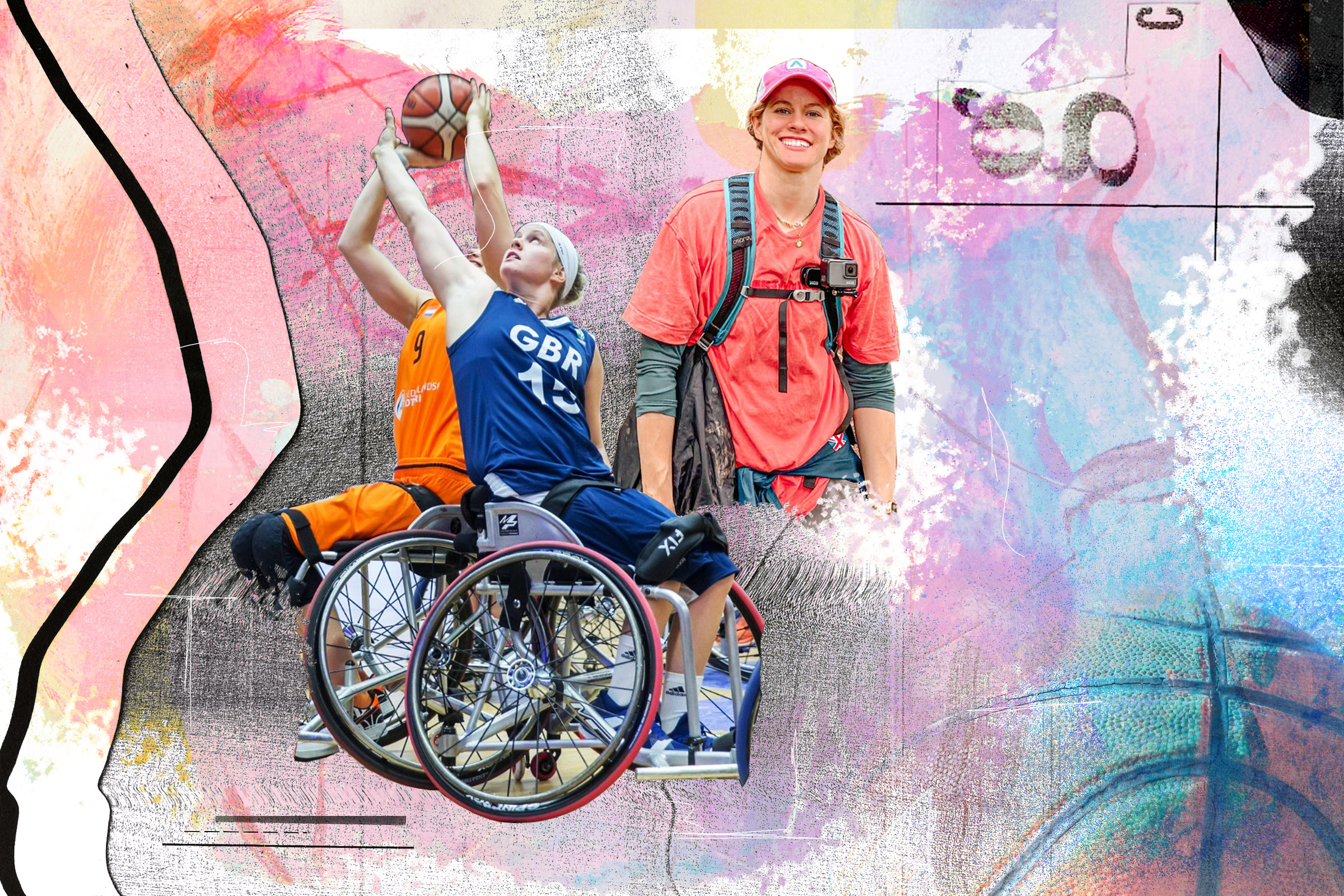
PASSIONATE
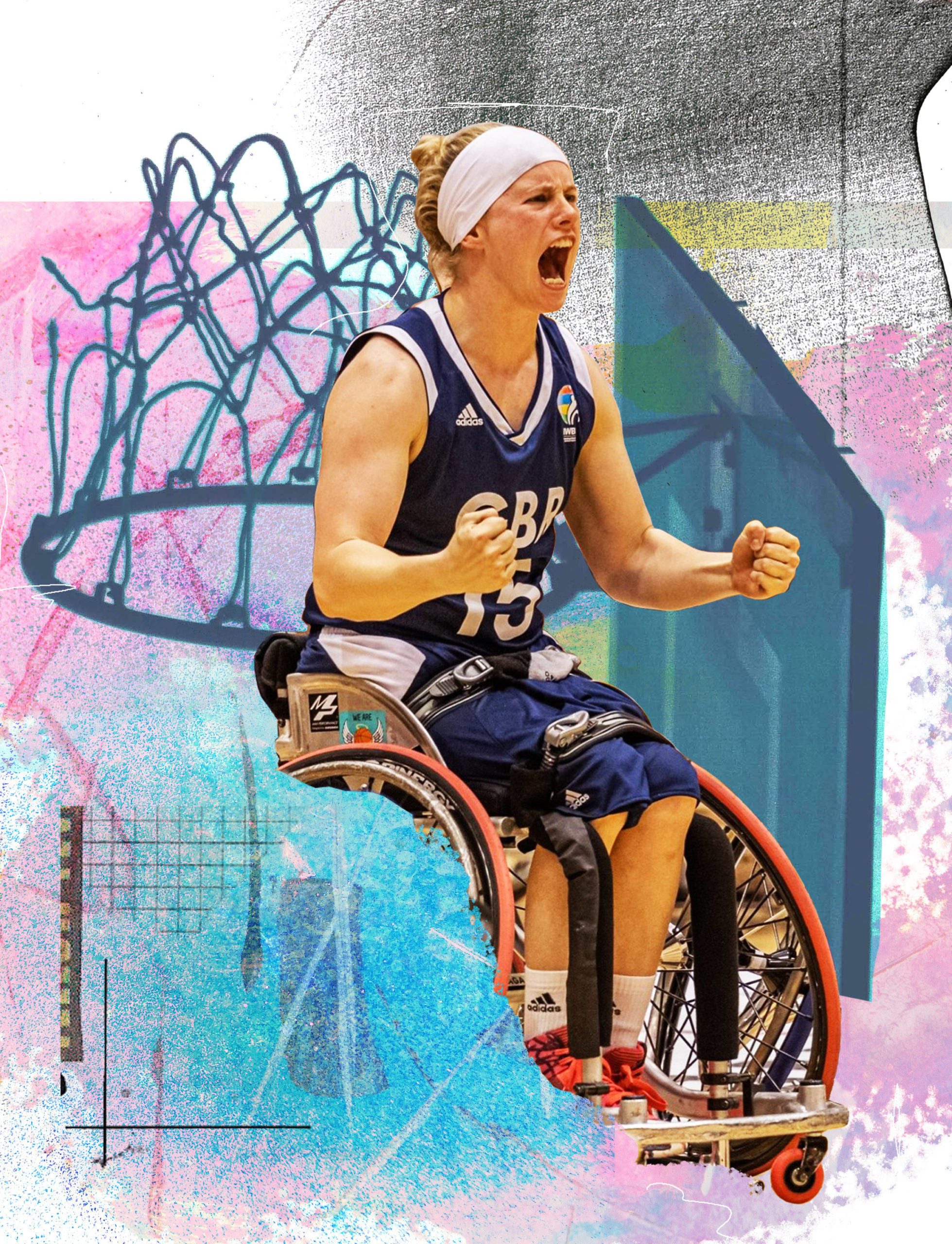
She tells me the very sweet story of how she surprised Laurie, 29, with a proposal in Paris, convincing her she was just faffing around getting a good selfie of them both by the Eiffel Tower. “I’ve got a video on my Instagram and you can see Laurie – she’s got a face like thunder because she’s thinking, ‘Why do I have to do this?’” As with so many couples, any wedding planning has had to take a back seat – though, unlike most couples, it’s not so much venue cancellations as postponed international sporting tournaments. “It’s been a strange year all round, really,” Robyn reflects. “We did get a dog, Whiskey. We are so boring now – we walk our dog, and I love to cook. My favourite question of the day is ‘What’s for dinner?’ My family back home is the same, back home, dinner is an occasion. I just love food and trying new things, and the whole cooking process. That’s how I usually wind down at the end of the day. But I think if my job wasn’t sport, my hobby would be sport. I took up golf last year during lockdown and I really enjoy it.”
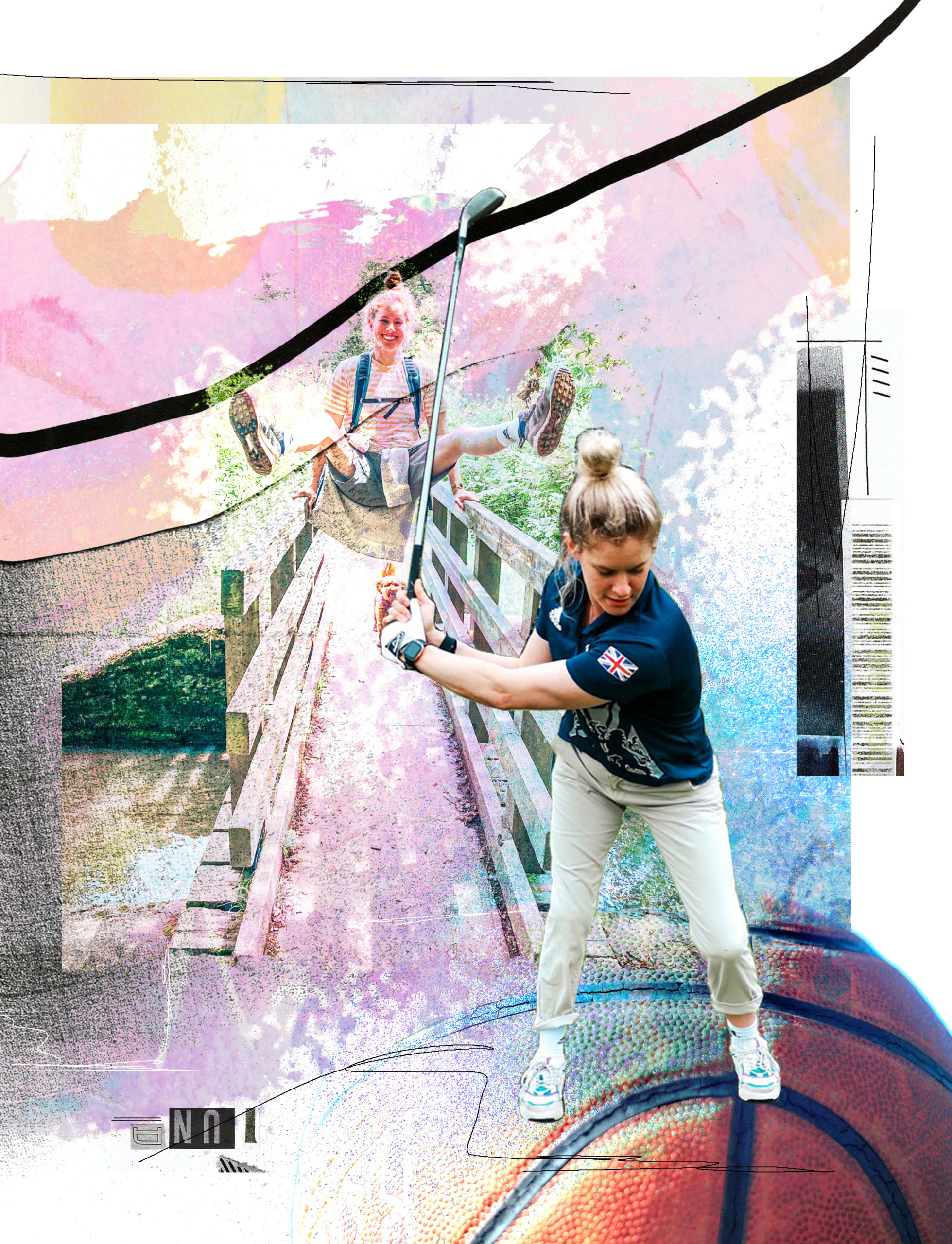
Robyn is also part of the new Unlocked programme intake and is excited about the opportunity. We return to where we started, talking about the joy of team sports. “My initial plan on joining the programme was, well, wheelchair basketball has changed my life so much, I want that for other people. I’ve loved sport my whole life, and when I was younger I could play able-bodied sports, where opportunities for women are quite plentiful. But within parasport, there are very few women’s team sports. Outside of international, it’s a mixed sport so in any club team, there’s usually only one or two women. And you just don’t get the same game. I want to give women and girls more opportunities – with each other and against each other.”
Robyn talks about wanting to set up a kind of academy, offering confidence workshops, talking about women’s health – a holistic approach. “And providing them with another outlet, outside of clubs” she explains. “Because I’ve seen so many girls start to play wheelchair basketball or come through the pathway and then they just kind of fall away. I think when you’ve got a 16-year-old girl playing in a club with men of 30, 40, 50 – it’s just not really an atmosphere where retention is high. I want to help women who just want to have fun,” she says. Talking to Robyn, you come away convinced that, academy aside, playing any sport with her would indeed be a lot of fun.
